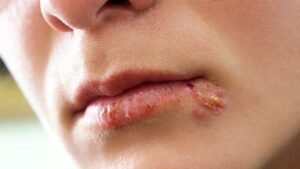85% of young people aged 18 to 44 engage in some form of sexual activity involving oral-genital contact or oral sex.
Many believe that engaging in oral sex without intercourse can prevent sexually transmitted diseases, which is not true. In summary:

- You can contract STDs orally or in your throat by performing oral sex on a penis, vagina, or anus of an infected person.
- You can get STD infections by having your genitals licked by someone with STDs in their mouth or throat.
- You can get infections in both oral and genital areas simultaneously.
- STDs transmitted orally can spread throughout the body as they normally do.
- Licking genital areas such as the anus can cause other diseases such as hepatitis A and amoebic worms.
- STDs can be transmitted from someone without any symptoms because many STDs have no symptoms at all.
- Sucking genital areas can transfer certain viruses that reside in the genitals and cause throat cancer.
The following STDs can be transmitted through oral sex:
- HIV/AIDS: Although the risk of HIV transmission through oral sex is low, it is still possible, especially for individuals with bleeding during sex, mouth or genital sores, or pre-existing STDs, as genital fluids contain high amounts of HIV.
- Gonorrhea: This STD caused by the Neisseria gonorrhoeae bacteria used to be primarily transmitted through vaginal or anal sex, but it can now be found in the throat due to oral sex. One of its severe complications in women is infertility.
- Syphilis: This disease starts with painless sores in the affected area, which can be in the mouth or genitals. It can later progress to a body rash, and in its advanced stages, it can affect the nervous system, leading to insanity.
- Herpes: This viral disease affects the genital areas but can reside in the mouth when transmitted orally. It can be accompanied by HPV, which can cause throat cancer.
- Warts: A type of growth occurring in the genital area that can bleed heavily if injured. It is treated by burning or surgical removal of the affected area.
- Hepatitis: This group of liver diseases can be transmitted through various means, including contact with bodily fluids or blood of an infected person, consuming contaminated food, and more. It is a serious illness that can lead to liver cancer.
- Chlamydia: This STD can be transmitted through vaginal, anal, or oral sex and can affect the cervix, uterus, and fallopian tubes.
In conclusion, oral sex is not a substitute for protection against STDs. If you choose to engage in it, it’s better to have a faithful partner, but if you have multiple partners, it’s best to use condoms and avoid oral-genital contact. Some STDs show no symptoms, and you may only find out when seeking to conceive.



